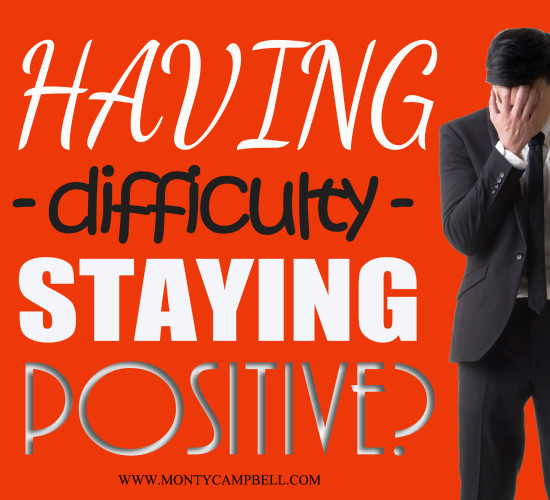It was 2010 and Rachelle Friedman was on top of the world.
She was about to get married and her four bridesmaids did what bridesmaids do – they threw her a great bachelorette party filled with dancing, dinner and fun.
To cap off the perfect night, the group decided to take a moonlight swim. In a playful gesture, a close friend pushed Rachel into the pool.
And then everything went horribly wrong.
Her head had struck the bottom of the pool and shattered two vertebrae, severed her spinal cord and left her permanently paralyzed from the chest down. She would never walk again.
One year later, Rachelle Friedman got married and became Rachelle Chapman. Two years later, she decided to share some thoughts on her experience during a question-and-answer Reddit session.
Her answers to the tough questions in that session will grip you.
When asked if things had changed for the worse after the accident she said, “Well things did change, but I can’t say in a bad way at all.” Then, when asked about her relationship with her husband she said, “I think we are just so happy because my injury could have been worse.”
With her world changed so drastically, how could she have such a great attitude? How is it possible to stay positive when things go wrong?
There’s a natural tendency in all of us to react emotionally when things don’t turn-out like we expected.
When something we wanted and hoped for fails to materialize, we feel a sense of disappointment and unhappiness. It’s easy to get disillusioned and feel sorry for ourselves.
But as difficult as these moments are, remaining negative about them is a choice. You read that right. It’s a choice. It’s your choice.
Now, some of you who have been through difficult times may not like what I just said. Hear me out…
Did you know that your conscious mind can only hold one thought at a time, either positive or negative? If you don’t believe me, try holding two conflicting thoughts in your mind. It’s impossible.
And we also know this about the mind – what you focus on expands. Whatever you put your attention on is what you’ll get more of.
Fill your mind with negative thoughts and you’ll be in a foul mood. Conversely, if you deliberately choose a positive thought to dwell upon, you keep your mind optimistic and your emotions positive. Since your thoughts and feelings determine your actions, you will tend to be a more constructive person, and you will start moving forward and get back on track with your goals in life.
Wobbling Weebles
In the 1970’s Hasbro invented a roly-poly toy called the Weeble. Tipping the egg-shaped Weeble would cause a weight located at the bottom-center to be lifted off the ground. Once released, gravitational force brings the Weeble back into an upright position.
This action gave rise to the popular catchphrase, “Weebles wobble, but they don’t fall down”.
And so must it be for anyone who wants to be successful. You can, and you will, wobble. But you cannot let life’s temporary setbacks make you permanently fall down.
You see, much of your ability to succeed comes from the way you deal with life and manage stress. One of the characteristics of successful people is that they recognize the inevitability of temporary disappointments and they accept them as a normal and a natural part of life. They do everything possible to avoid problems, but when problems come, superior people respond with a positive attitude and keep moving forward in the direction of their dreams.
I know what some of you may be thinking. So, how am I supposed to just think positive thoughts when I’m so !@#$% upset?
The answer lies in the ledger system.
One of the most underrated self-improvement concepts is developing a healthy sense of self-efficacy and how it can change your life. If you don’t already know, self-efficacy is your belief in your ability to influence outcomes in your life. It’s a combination of self-confidence and trusting in the process: it means you believe in yourself and that your efforts will be the difference between being successful or not.
Self-efficacy can be explained in a mindset:
- Low self-efficacy -“Saving a little bit of money won’t make much of a difference, so why bother?”
- High self-efficacy – “If I consistently save even small sums, one day I’ll have a large sum of money!”
High self-efficacy means you trust yourself. You trust what you’re doing will matter. Without it, everyday stress can make you feel hopeless. With it, you can do amazing things.
“Life happens to me” or “I create my life”?
The person with low self-efficacy doesn’t think his behavior really matters. He just exists and tries to enjoy life the best he can, riding life’s waves in his little boat. The high self-efficacy person knows that their decisions, especially the small ones, create vastly different results. They believe they create their life, not that life happens to them. The low self-efficacy person complains about the wind. The high self-efficacy person anticipates the wind and adjusts his sails.
If you’ve been a serial goal quitter, then you want to pay close attention here.
Every time you have a setback or life throws you a curve ball, it’s only natural that your self-efficacy drops. Why? When faced with a setback, it can become (false) evidence that you do not influence outcomes in your life.
That is, unless you change the evidence. Enter the ledger system.
If I asked you to make a list under a heading labeled “Things I’m choosing to be negative about”, what would be on your list? Would it be things like:
Now, what if you just stopped there? Pretty miserable just to focus on that list isn’t it? That’s the world of the low self-efficacy person and a life of repeated bouts of negativity and misery, in between short periods of positivity.
But what would happen if you added another column? Try this. Add a column to the right labeled “Things I’m choosing to be positive about instead”. Now, for each negative item in the left column, write a positive, empowered statement in the right column that is the negative item’s opposite.
Here’s an example:
Now let me say this about the above. This isn’t Pollyanna, happy talk psycho-babble. It’s about changing the “tape” that plays in your mind. So, when you encounter a setback you don’t automatically reach for the “woe is me” tape and play it over and over again, making yourself even more miserable. Playing that tape is a choice. And if it’s a choice, why not play a different tape? How about the “Whoa is me!” tape? That’s a tape that will help you regain your footing and get back to the business of life and accomplishing the big goals you have set for yourself.
And about those big goals. ..
The best way to build self-efficacy is to set smaller goals first. Rather than setting goals that you might not reach, try setting goals that you can absolutely crush first and then move the bar higher as you go.
For example, if you’re having trouble saving, it’s smarter to attempt saving 5% of your income each month than to attempt saving 50% each month right out of the gate. Doing the latter might result in a quick failure and reinforce your thinking that you cannot save money (low self-efficacy). However, successfully completing even a small goal shows that you do influence outcomes (high self-efficacy).
At first, your self-efficacy might be like this: “I can meet this requirement every day with just a bit of discipline.” Later, it will grow into something more significant: “My net worth is increasing substantially because of my savings habit. This is working!” And from that point, it can snowball further into even bigger and better things.
I want to summarize this post with this statement: Please know that I’m not making light of anyone’s suffering with this article. Nor am I minimizing what Mrs. Chapman went through, down to some simple self-help soundbite of “Just be positive!” Rather, I’m highlighting her courage and decision to be positive in spite of such a horrific event. In other words, if Mrs. Chapman can bounce back and choose to be positive, can you not do the same with whatever has got you down at the moment?
Know this: It’s OK to have setbacks and to temporarily feel bad about them. What’s not OK is to stew on the setbacks, setting-up a permanent “camp of misery.” It’s also not healthy to oscillate back and forth between positivity and negativity on a frequent basis. That’s a sign of low self-efficacy.
If you find yourself doing either, try the ledger system. Start replacing the negative “tapes” with positive ones. It won’t happen overnight, but with practice and persistence you’ll soon find that the negative tapes disappear and that you can be a consistent happy camper!
Be free. Nothing else is worth it.
What about you? What ways have you overcome setbacks and remained positive? We would love to hear from you. Share your story in the comments section below.
Need more hard-hitting information about achieving financial freedom? Take a look at these posts from the blog archives:







